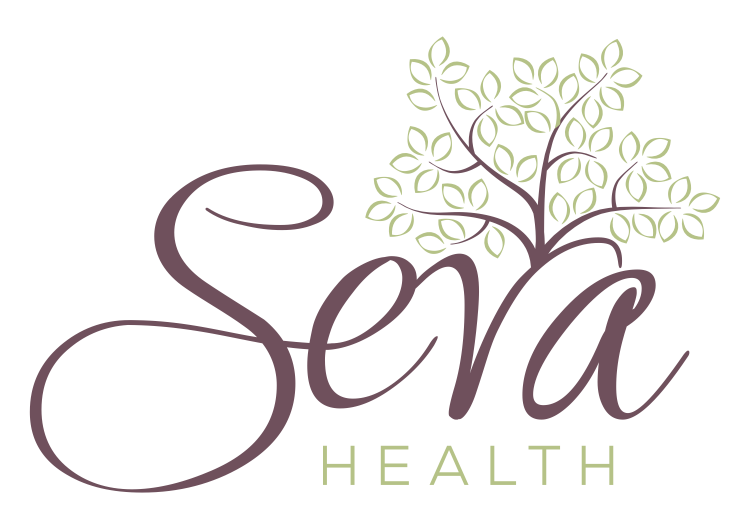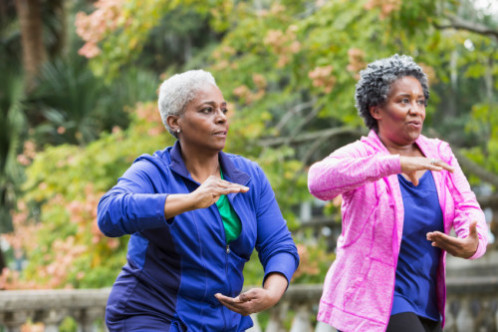31 Jan Your T’ai Chi Prescription is Ready for Pick Up
Two weeks ago I read an article that began “January feels like a month full of Mondays.” As I considered what Mondays feel like for most of us—fatigue, lack of energy, lack of motivation—I immediately understood what the author meant. Unlike all of the other months of the year, January is both the beginning and the end. The beginning of a new calendar year with new expectations and new goals and more pressure to get things done. It’s the month of looking back on the previous year and setting the tone for the next. It’s also the end of a season’s worth of time spent shopping in crowded malls, advertisements at every turn, holiday parties and constant reconfiguring of schedules that are already filled to the brim. The deep sigh of relief after the holidays are over is quickly met by the struggle to regain energy, focus and, more importantly, a sense of calm. How do we get our engines going and keep them going, amidst the longest and coldest days of the year? How do we deal with the Sunday Night Blues when we realize the weekend has come to a close and Monday—filled with all of its stressors—has rolled around again?
 As most of my patients and their families know, I’m a big believer in the old maxim ‘practice what you preach.’ How can I emphasize the importance of stress reduction if I am not working to do the same? How can I walk into a patient’s home on a Monday morning or dial into a health coaching session feeling run down, depleted, exhausted and looking haggard from stress? What kind of health advice can I ‘pour out’ if my own cup has run dry? What kind of meaning can I derive from my work as a healthcare provider if I am burning the candle on both ends with barely enough time to rest and reflect? For me, the answer has always come through maintaining a mind body practice that helps me re-energize, re-center and re-focus; a practice that fills my cup just as a pitcher of water would fill an empty glass, every day.
As most of my patients and their families know, I’m a big believer in the old maxim ‘practice what you preach.’ How can I emphasize the importance of stress reduction if I am not working to do the same? How can I walk into a patient’s home on a Monday morning or dial into a health coaching session feeling run down, depleted, exhausted and looking haggard from stress? What kind of health advice can I ‘pour out’ if my own cup has run dry? What kind of meaning can I derive from my work as a healthcare provider if I am burning the candle on both ends with barely enough time to rest and reflect? For me, the answer has always come through maintaining a mind body practice that helps me re-energize, re-center and re-focus; a practice that fills my cup just as a pitcher of water would fill an empty glass, every day.
Two years ago, after many years of practicing yoga, I decided to make things a little interesting by trying out something different. From what I had heard, T’ai Chi would feel like ‘meditation in motion.’ This was particularly interesting since the sitting meditation I learned in yoga was always difficult for me. No matter how hard I tried, I always felt restless as if there were a little clock ticking in the back of my head just waiting to alarm. Serene images of elder Asian men and women in parks, moving slowly through postures that flowed like water convinced me that this was just what I needed. Beauty aside, the practice looked incredibly simple with the added plus that no equipment was needed. Their facial expressions exuded everything I was looking for: calm, centeredness, focus. This, I thought, will be perfect. And easy.
Here’s what I had right: T’ai Chi is like ‘meditation in motion.’
Here’s what I had wrong: 1. It is not perfect 2. It is not easy.
Six weeks into a one year contract at a local martial arts school, I questioned the reason why I was torturing myself this way. Why had I committed myself, at this stage in life, to three nights a week worth of odd standing positions and movements that seemed the opposite of what my body wanted to do; sequences I couldn’t remember no matter how hard I tried? There was no ‘flowing like water’ in this body that felt as stiff as wood. My movements were messy and worst of all my breath felt trapped. After eight weeks, I downloaded a timer app for my phone and programmed the date that my contract would be over. Life is stressful enough, I told myself. Who needed more?
On the eve of my contract’s end date something clicked. One evening during class a senior instructor remarked at how ‘fluid’ my motions had become. “You must be practicing, huh?” Yes, I had. Without recognizing it, my body had begun to memorize the sequences, sinking deeply into what was familiar. Each movement was carried on the wave of a breath that came easier. My body had learned to relax.
The more I practiced and gave myself permission to be messy and stiff, the more ‘muscle memory’ I gained so that the mental work of remembering the sequences lessened and the movements flowed more naturally. Though I may not have actually looked like the elder Asian men and women in the parks, I certainly began to feel like it.
And here’s what also happened: I began to have more ‘relaxation memories’ outside of class. In moments that I felt stressed or overwhelmed—whether in line at the grocery store or wedged in traffic or in a clinic appointment that ran far longer than it should—I could tap into the breathing practices that I’d learned both in yoga and in Qi Gong (T’ai Chi) to bring about a sense of calm. Like a timeless glass thermometer used to check for a fever, our breath is an honest indicator of the “temperature” of our emotions. I became increasingly aware of when my breath was shallow or short and my body was tense, noticing patterns of stress and that all-to-familiar feeling of overwhelm. This awareness became the key to unlocking answers about what I needed to do to create more balance, more joy and less stress in my life.
Something to Think About
Despite the glossy advertisements suggesting otherwise, mind-body practices such as yoga, T’ai Chi and Qi Gong are not new. They are ancient systems of medicine rooted in the science of the human body—its organs and structures and functions—that offer practical methods for re-teaching our bodies how to relax. In a body that is relaxed, there is less opportunity for stress related illnesses to occur. In a mind at ease there is less propensity toward worry, doubt, dread, anger, and irrational fear. The mind at ease is more capable of reframing stressful encounters with others into a ‘bigger picture’ rather than a narrow focus on who is right and who is wrong. A mind at ease is more focused on finding solutions in life rather than wallowing in its problems.
When I am practicing yoga or T’ai Chi (or both!) I am more patient with my family and friends. I am a better listener; more intuitive and attentive to the needs of my patients and their families. When I give my mind and body the opportunity to relax, I am more aware of places of tension (the lower back, the neck and shoulders) and less apt to overwork myself, losing out on much needed sleep and rest. I set more realistic goals while remaining flexible to the reality that life itself is unpredictable for all of us, all of the time. The messiness of my practice becomes a metaphor for the messiness of life that each of us have to contend with all of the time, whether it’s the beginning of the week or the end. I’m less of a perfectionist and more of a realist that health is a journey and change, of any kind, takes time.
Your Prescription for Good Health
I am not alone in my belief that learning (or re-learning) to relax is good medicine. Research studies around the world have demonstrated the benefits of T’ai Chi to reduce blood pressure, relieve joint pain, improve balance, strengthen memory, reduce anxiety and lift depression. Even health insurance companies have begun to realize the benefits of mind body practices in all ages and have started to encourage members to incorporate mind-body practices into their health routines.
As strange as it may sound to some, I’ve begun to write actual Yoga and T’ai Chi prescriptions for my patients and clients. Depending on the person, their physical structure and their health needs, I include resources for simple breathing and yoga or T’ai Chi sequences that can easily be done at home. I have begun to suggest these practices to caregivers who are overwhelmed with the day to day tasks and emotional stress inherent in caring for loved ones.
Whether it is the cold, dormant days of January that feels like a month of Mondays or the bright, blooming days of Spring, yoga and T’ai Chi are year round invitations to better health for all of us.
Have a look at what research has shown:
T’ai Chi Helps Older Patients with Disabling Conditions
T’ai Chi Improves improve physical performance in individuals with different chronic conditions, including COPD and Heart Failure
http://bjsm.bmj.com/content/early/2015/09/04/bjsports-2014-094388.short?q=w_bjsm_education_sidetab
Could Doctors Prescribe T’ai Chi?
http://www.uhc.com/bmtn-categories/bmtn-news/2015/09/20/could-doctors-prescribe-tai-chi
The Health Benefits of T’ai Chi – Harvard School of Medicine
http://www.health.harvard.edu/staying-healthy/the-health-benefits-of-tai-chi
And here’s a video to help get an idea of what a beginning practice might look like:



No Comments